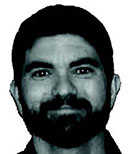![]()
I want to express my gratitude to the Threefold Advocate for covering my recent talk in J. Alvin titled, “Catholics and Evangelicals: Friends or Foes?” I consider it a testimony to the student body at JBU that this topic would be of such interest and considered of such importance as to warrant the paper’s headline story. Anyone knowledgeable of journalism will tell you (my wife was a journalism major), however, that one news article is simply unable to capture all the nuances and distinctions that surround such a delicate and complex topic. And so I want to offer just a few points of clarification here.
First, the recently established Paradosis Center at JBU (see www.paradosiscenter.org) is not attempting to start a conversation between Evangelicals, Catholics and Orthodox. That conversation is already happening in North America (whether we like it or not). The Center is merely trying to shape the dialogue in a positive way by keeping the gospel of Jesus Christ as revealed in the Scriptures central in the discussion.
We recognize that what unites us is our faith in Jesus Christ. But this is also a place of our divisions. We want to ensure that the conversation doesn’t get sidetracked by focusing merely on social issues and downplaying the real theological similarities and differences among us. We want to ensure that the issue is truly about upholding a Christian faith consistent with the Scriptures.
Second, I want to address the news article’s report regarding he fact that in my talk I stressed that Catholics and Protestants both believe in the gospel. I began my talk by reading 1 Cor. 15:3-8, where Paul summarizes the gospel as Christ dying for our sins, being buried, rising on the third day and appearing to the apostles. I asked, “Do Catholics believe Christ died for our sins, that he was buried, etc.?” and I answered (as I could only answer): “yes.”
But then I unpacked differences between Catholics and Protestants concerning justification and sanctification and the implications for understanding faith, works, transformation, imputation and the like. At that point I turned to the audience and stated, “It is for you to decide how much and to what extent these differences are within the bounds of ‘the gospel.’”
For some pastors in Siloam Springs and professors, students and alumni of JBU, the differences if rightly understood are indeed within the bounds of “the gospel.” For others, they are not. And that’s the conversation we are able to have here at JBU. Both voices must be heard. But it’s also the responsibility of both voices to be at the table.
In my mind, JBU is perfectly situated to facilitate the dialogue between Catholics and Evangelicals. We are an interdenominational evangelical university with a significant Catholic student body that is committed to asking probing and challenging questions.
Unfortunately, our Catholic students sometimes feel misrepresented and mistreated; during my Ph.D. studies as the only Protestant in an all-Catholic doctoral program, I also experienced misrepresentation.
Confusion and misunderstanding abound on both sides. The issue is too complex for any pat answer. That is why we must walk together as Evangelicals and Catholics in love, committed to truth so that through the grace of Christ we might more clearly embody the unity Christ prays for in John 17: “Holy Father, protect them in your name that you have given me, so that they may be one, as we are one.”





